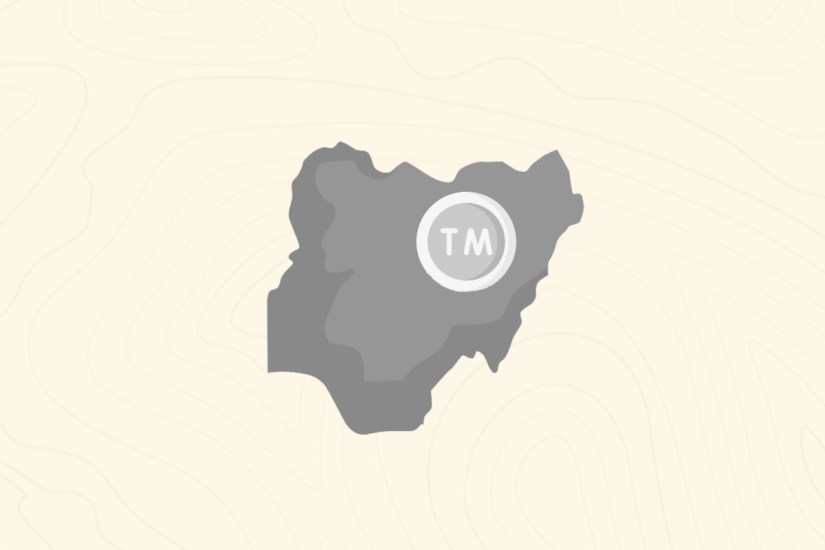Ever wondered why Closeup, Oral B, and Maclean have different designs? It’s simply because, in a saturated market, each product must have a way of distinguishing itself from others. This distinction is made possible by the laws regulating trademarks. The law regulating trademark registration in Nigeria is called the Trade Marks Act, and it provides for the types and classes of trademarks, procedure for registering trademarks, the rights you get upon registration, and other rules relating to trademarks in Nigeria.
What is a Trademark?
A trademark is simply any mark used or proposed to be used for the purpose of indicating a connection between the goods and an individual who has the right to use the mark either as a proprietor or as a registered user.
Simply put, a trademark is a sign or mark that is unique to a product and is used by the owner of a product to differentiate their product from the product of another. It basically helps consumers to identify products.
When registered, the owner of a trademark possesses certain rights which they enjoy. The implication of this is that the holder of the trademark uses it exclusively, and it cannot be used by other persons without permission. This partly explains why you cannot outrightly establish an eatery and slap the “Mr. Biggs” logo on it without having obtained the necessary licence.
If a business fails to register its trademark (and is not protected in any other manner by the laws), then competitors may freely use the same or similar marks on their products. This may mislead consumers and is also likely to lead to profit implications.
Types of Trademarks
There are several types of trademarks. These include:
- Trade marks: This is often used to differentiate the goods of one manufacturer from that of another.
- Service Marks: Used to differentiate the service provided by one entity from that provided by another service-providing entity.
- Collective Marks: This represents the marks that are used to distinguish goods produced by or services rendered by members of an association.
- Certification Marks: This is a term that depicts marks that are used to identify goods that have been certified by a relevant body as satisfying a set of standards.
- Well Known Marks: This is a class of marks that have earned a level of notoriety in the market and would therefore benefit more from stronger protection.
Requirements for registering a trademark in Nigeria
Generally, one cannot enjoy the exclusive right to a trademark without registering it, although there is an exception for “use”. Notwithstanding, it is advisable to register a trademark to enjoy exclusive rights. Trademark registration in Nigeria is done at the Nigerian Trademarks Registry.
For a trademark to be successfully registered, it must satisfy the following requirements:
- The mark must not be generic in nature e.g., Table.
- The mark must not be descriptive in nature. E.g., “classic” “tasty” unless they form a part of a mark that is distinctive as a whole.
- The mark must not be deceptive.
- It must not be contrary to public order or morality.
- It should not contain flags, armorial bearings, official hallmarks and emblems of states and international organizations.
- It should not conflict with previously existing trademarks.
- It must fall under one or more of the 45 trademark classes for goods and services.
Procedure for trademark registration in Nigeria
The general procedure for trademark registration in Nigeria can be summarily set out as follows:
- You must conduct a search to confirm the availability of the trademark. This is easier with Norebase
- Make an application for the trademark by submitting a duly completed trademark application form. This form shall be accompanied by:
- A Power of Attorney authorizing the applicant’s agent,
- A graphic illustration of its mark (hard copies)
- A description of the goods and services and/or class(es) for which your business wishes to obtain trademark registration.
- You must pay the required fees.
- The Registry issues a Notice of Acknowledgment.
- If approved, the Registry issues a Notice of Acceptance.
- Publication of the Trademarks Journal.
- The Registry received objections to be the certification of the trademark, if any.
- Where there is no objection entered, an application for sealing of the trademark application is made.
- The Registry issues a Certificate of Registration.
How long does a Nigerian trademark last?
Once registered, a trademark registration is valid for seven (7) years in Nigeria. Once this term expires, the registration can be renewed for 14 years terms without limit.
Although one may enjoy trademark protection even without registration, the importance of registering your Nigerian trademark cannot be overemphasised as it provides a better legal guarantee and makes it easier to prove in case there is a need to enforce one’s rights. Also, it is important to consider trademarking your company’s assets like Company name, logo, and slogan when you incorporate your company
We understand the complexities involved when registering a trademark in Nigeria, which is why we have simplified the process for you. Click here to get started.




5 thoughts on “The Ultimate Guide to Trademark Registration in Nigeria”